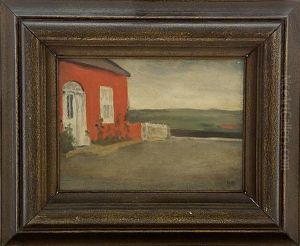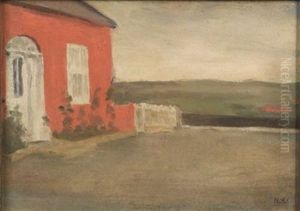Nora Houston Paintings
Nora Houston was an American painter and social activist born on January 24, 1883, in Richmond, Virginia. She was raised in a socially prominent family and was the niece of prominent artist Amelie Rives. Houston's formal art education began at the Art Students League of New York, and she later continued her studies in Europe, which was quite common for American artists of her time.
Nora Houston's artistry flourished upon her return to Virginia. She became known for her portraiture and landscapes, and her work often reflected the impressionist style that was popular during her time. However, Houston's contributions were not limited to the canvas; she was deeply involved in women's rights activism and was a prominent figure in the suffrage movement in Virginia. Her commitment to social issues also extended to her art, as she often used her talents to visually promote the causes she supported.
Despite facing the societal challenges of being a female artist in the early 20th century, Houston established herself as a significant figure in the Richmond art community. She taught art at the Virginia League of Fine Arts and Crafts and later co-founded the Richmond Art Club with her lifelong friend and fellow artist Adele Clark. Houston's dedication to art also led her to become an art instructor for impoverished children, reflecting her belief in the transformative power of art and education.
Houston's life was marked by her dedication to both her artistic pursuits and her social activism. She never married, instead devoting her life to her passions. Nora Houston's legacy is preserved through her paintings, many of which are held in private collections and museums in Virginia. She continued to be active in her artistic and social endeavors until her death on November 20, 1942. Her life and work remain an inspiration for those who advocate for social change through artistic expression.

